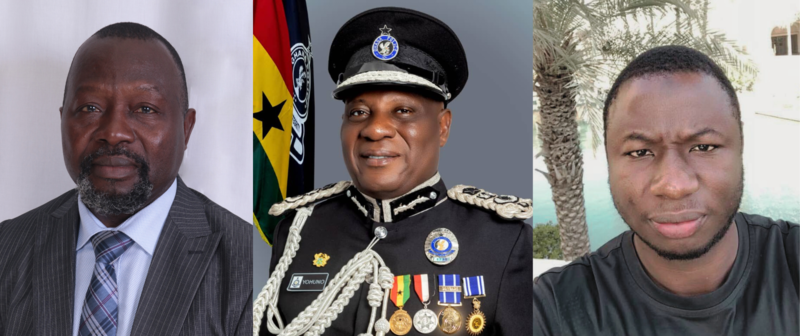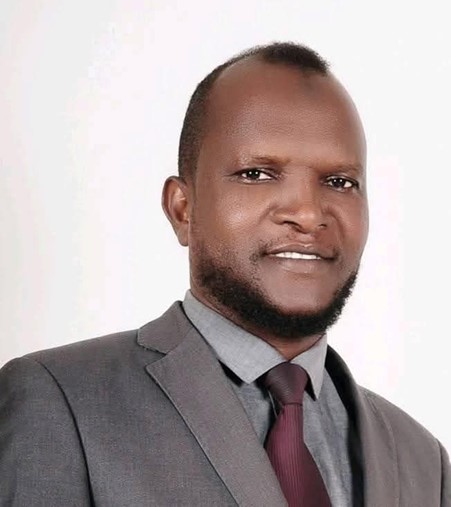The Madina District Court has decided to discontinue the murder case of investigative journalist Ahmed Hussein-Suale, following advice from the Attorney-General’s Office that the available evidence was insufficient to sustain prosecution.
According to local media reports, the decision led to the discharge of the main suspect, Daniel Owusu Koranteng, on October 14, 2025. The Attorney-General’s review reportedly found that crucial pieces of evidence, including call records and witness materials, did not meet the threshold required to sustain the charges of murder and abetment.
This development comes nearly seven years after Ahmed Suale was brutally killed on January 16, 2019, in Madina, a suburb of Accra, by unidentified assailants who were on a motorbike. His murder sent shockwaves throughout Ghana and beyond, raising urgent concerns about journalist safety in the country.
A Case Full of Delays and False Hopes
In March 2025, Ghana’s Police Service arrested and charged Daniel Owusu Koranteng, in what appeared to be the first tangible progress after years of public pressure. The arrest rekindled hope that justice for Suale was finally in sight. But as hearings proceeded, prosecutors submitted the case docket to the Attorney-General’s Department for advice. Months later, that advice led to the discontinuation of the case, essentially taking the search for accountability back to square one.
This outcome reflects a troubling pattern of inaction and lack of clarity that has defined the state’s handling of the case since 2019. Despite multiple official assurances and high-level commitments, including presidential pledges to “ensure justice is done,” there has been little visible progress toward identifying and prosecuting the actual killers.
It has been a painful odyssey of assurances, denial, inertia and silence. The timeline below retraces the high and low points of the single most appalling attack on press freedom in Ghana:
- June 6, 2018 – Tiger Eye Private Investigations, for which Suale works, screens “Number 12” an investigative documentary that exposes massive corruption in Ghana and African football.
- The screening is in spite of a campaign of hate by a leading member of the ruling New Patriotic Party (NPP) and MP, Kennedy Agyapong. The MP threatened to expose corrupt deeds of Anas Aremeyaw Anas, leader of the Tiger Eye PI team, if Tiger Eye goes ahead to screen ‘Number 12’.
- Following the screening of ‘Number 12’, Agyapong’s attacks on the Tiger Eye PI team intensify, and by late June, the MP is publishing photographs of members of the team including Anas and Suale who are always disguised.
- Not long after, Agyapong escalates his campaign of hate against Ahmed Suale in particular, the lead investigator in the “Number 12” exposé. Agyapong publishes Suale’s photographs on Net 2 television which he owns. While blowing the cover of the journalist, Agyapong also calls on his supporters to attack him, assuring all would-be aggressors that he would assume responsibility for the consequences.
- January 16, 2019 – Ahmed Suale’s vehicle is waylaid in traffic at Madina by two unidentified gunmen who shoot him three times, twice in the chest and once in the neck.
- January 21, 2019 – Police announce it has already interrogated Ken Agyapong and former Ghana Football Association President, Kwesi Nyantakyi, in connection with the murder.
- January 22, 2019, one whole week after the murder, a high-powered police delegation visits the crime scene. They had earlier the same day commiserated with Ahmed Suale’s family and assured them of apprehending and prosecuting the perpetrators
- January 30, 2019 – Kennedy Agyapong says publicly that he does not regret blowing the cover of Ahmed Suale.
- February 7, 2019 – police arrests six suspects over the murder. By March, all suspects are released for lack of evidence.
- March 18, 2019 – Agyapong reveals that his campaign of attacks on Anas which was later escalated to Ahmed Suale had been instigated by some leading members of his political party, the NPP, who felt Anas’ work was dangerous to the NPP.
- July 2019 – Attorney General announces she is yet to receive a docket on the Ahmed Suale case from the Police.
- September 9, 2019 – President Akufo-Addo says at a Ghana Bar Association conference in Takoradi that the assassination of Suale may not be necessarily connected to his job as a journalist and therefore it cannot be said for sure that the murder was an attack on press freedom. The MFWA protests the President’s statement, describing it as unfortunate.
- May 24, 2021 – Ken Agyapong accuses Head of Police, IGP George Akuffo Dampare, of knowing, but refusing to reveal the identities of Suale’s murderers. The MP goes on to name one Ansu Gyeabour as the killer of Suale. Ansu Gyeabour refutes Ken Agyapong’s allegation.
- July 27, 2021– The Attorney General informed Parliament that no suspects had been charged or prosecuted. The AG also revealed that Suale’s phone had been sent to an American company to be decoded and then returned to the cyber security department of the Ghana Police Service.
- December 13, 2022 – At a forum to commemorate World Human Rights Day, Ghana’s Attorney General, Godfred Yeboah Dame, reiterates President Akufo-Addo’s insinuation that the murder of Suale may be unconnected to his job as a journalist. The MFWA responds with an article.
- December 22, 2022 – President Akufo-Addo vows that his government will continue to search out for the murderers of Suale – “I continue to be deeply regretful that despite the unseasoned best effort of the police, the perpetrators of the murder of Ahmed Suale can still not be found. But I assure you that, so far as I remain President, the dossier cannot be closed until they are brought to justice.”
- May 15, 2023– Two days after his party’s delegates overwhelming endorsed his party flagbearer bid for a second mandate as President of Ghana, ex-President Mahama pledged to pursue the case adding, “To deepen our democracy, the fourth estate of the realm, the media, must also be given a conducive and collaborative atmosphere to operate as the fourth power that they ought to be without threats, harassments and assassinations.”
- February 20, 2024– Ghana’s Attorney-General revealed (three years after a similar comment to Parliament), “No docket or document fit for prosecution has been built and presented to my office since the murder”. The MFWA responded with an article.
- March 17, 2025 – The MFWA welcomes the arrest of a suspect in the case and urges the Inspector General of Police to take a personal interest in the case.
- March 27, 2025– President Mahama during a meeting with the Ghana Bar Association in Accra informs the public that he has given direct orders to investigative bodies to expedite ongoing investigations into unsolved killings in the country, including the murder of investigative journalist Ahmed Suale.
- Court decides to discontinue the murder case of investigative journalist Ahmed Hussein-Suale, following advice from the Attorney-General’s Office that the available evidence was insufficient to sustain prosecution – current status.
MFWA Calls for Clarity and Renewed Commitment to Justice
The Media Foundation for West Africa (MFWA) finds the discontinuation of the case extremely concerning and is calling for the state to be fully transparent. While the MFWA acknowledges the Attorney-General’s discretion in prosecutions, it argues that the public deserves a thorough explanation as to why the case could not move forward after nearly seven years of inquiries.
The MFWA is therefore urging the Attorney-General’s Office and the Ghana Police Service to:
- Publish a detailed report outlining the evidence gaps that led to the discontinuation of the case.
- Reopen investigations into the murder, with a renewed focus on the two unidentified assailants involved in the attack.
- Invite independent forensic experts to review the original case file to ensure no critical evidence has been overlooked or mishandled.
- Provide regular public updates on the status of the investigation and any new developments.
A Dark Chapter for Press Freedom in Ghana
The unresolved murder of Ahmed Hussein-Suale remains one of the darkest moments in Ghana’s media history. It has been a recurring feature of Ghana’s declining performance on the World Press Freedom Index, and a painful reminder of the growing impunity for crimes against journalists.
The discontinuation of the prosecution cannot be the end of the road. Rather, it should serve as a wake-up call to Ghana’s justice and security institutions to demonstrate a genuine commitment to accountability. Justice for Ahmed Suale is not only about one journalist; it is a test of Ghana’s commitment to the rule of law and the protection of free expression. The MFWA stands in solidarity with the family of Ahmed Hussein-Suale, his colleagues at Tiger Eye P.I., and Ghana’s media fraternity in demanding that this case should not be allowed to fade into obscurity.






